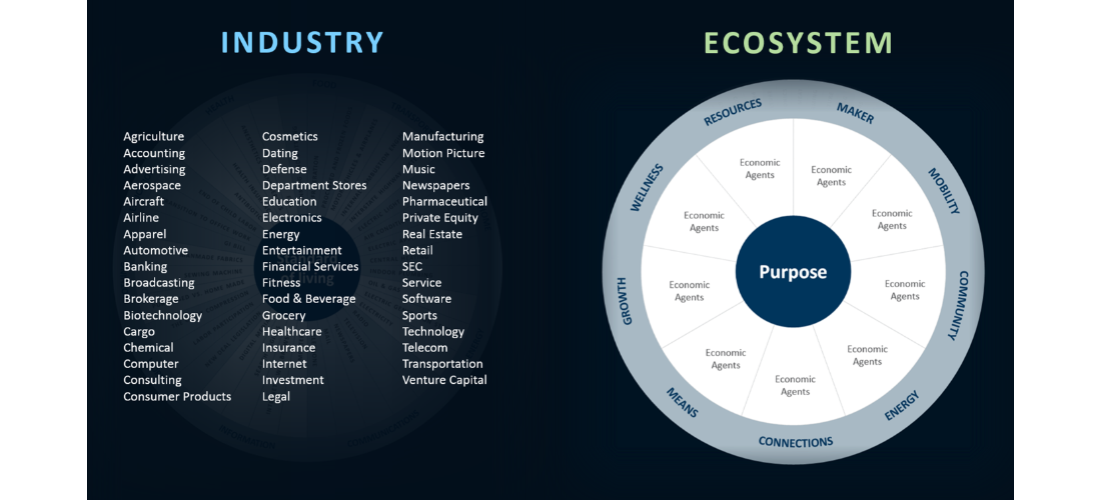
Strategy In The Digital Age: 5 Issues That Companies Often Overlook (Part 1)
6 yearsago 0 Comments 2.2k Views
Digital strategies of businesses often fail because of the lack of coherence with the essential changes of the economy, the movement of the industry or even the objective of the strategy itself. There are many large corporations that sometimes stand outside the digital revolution, leading to unforeseen changes in user behavior and technological advances that influence those behaviors. Consequently, corruption for businesses is something that can be predicted early.
So, how do the strategies fail, while almost all businesses are very interested in such a digitized future? A McKinsey study has pointed out five common issues from these failure strategies.
Issue 1: Ambiguous and confusing definitions
Some leaders view “digital” as an upgraded term for specifying their company’s IT role. Others see digital content as the use of digital marketing and sales campaigns. But few of them have a comprehensive overview of what “digital” means. McKinsey defines digitally as connecting people, devices and objects around instantly, for free and without difficulty. In the past 2 years, these devices have generated more than 90% of the collected data. Measuring and processing the amount of data from digital devices allows people to achieve new scientific advances in automation – in the process of handling, and more specifically, decision making. All of this allows people to innovate with completely new and unique business models.
In the absence of a clear definition of digital, companies will find it very difficult to integrate these strategies into their business, causing them to fall into the spiral of change and adaptation in digitalization industries.
Issue 2: Misunderstanding about the economy in the digital age
1. Digital is erasing the amount of economic rent
One of the concepts that we learn in microeconomics is economic rent – the profit gained from the excess of social and economic needs. Digital, by contrast, is creating more value for users, thus narrowing this kind of profit from businesses. Therefore, experts need to learn how to do the opposite of what they are doing: adapt and survive quickly to be able to compete, create surplus value for users (instead of businesses) and keep them in range of profit for the business (derived from users’ willingness to pay – no longer from social redundancy).
2. Digital is forming a winner-take-all economy
Because gross margins are gradually shrinking, while the market size and network are expanding, economic value will now no longer be divided equally for all businesses participating in any industry (Amazon’s dominance in E-Commerce and iPhone in the phone market are typical examples). This implies that a company has a profit-sharing strategy for peers to creat group monopolies, that may come to an end – unless that company is already the market leader.
3. Digital brings good results to pioneering companies and companies follow quickly
In the digital vortex, rapidly changing companies will gain a greater advantage than their competitors. Because these companies will have an advantage in the learning curve. They are willing to have trials-and-errors, boldly launching new prototypes and gradually improve them over time – thereby shortening product development time in several segments from several months to several days. They also expanded their business models and created information networks thanks to artificial intelligence and quickly left behind slow opponents. As a result, they are easily pioneers of product versions 3.0 – 4.0 while opponents are only stopping at version 1.0 – which was created only by imitating their products.
Issue 3: Overlooking industry ecosystems
Digital will sometimes make strategies that focus on the industry itself face serious challenges. Traditional approaches such as closely monitoring and predicting the activities of competitors and using the information collected to adjust their own activities or enhance the value chain will be very dangerous for their relatives.
Industries will soon combine and create varieties of ecosystems. Creating platforms that allow digital businesses to move easily between industry boundaries and the segment will easily crush traditional business models with a short-term vision.

Industry ecosystem by McKinsey
CEOs need to have a broader perspective when evaluating potential competitors – or potential partners. In the context of the environment that is gradually revolving around the ecosystem, today opponents can become friends in the future. Failure to see this change will cause businesses to miss new opportunities and potential threats.
——————–
How do you think about this article? Please share it with us via the comment section below.
>>> Continue reading Part 2 which points out 2 last issues that companies often overlook.
According to McKinsey
PRIMUS – FIRST CLASS JOBS ONLY





